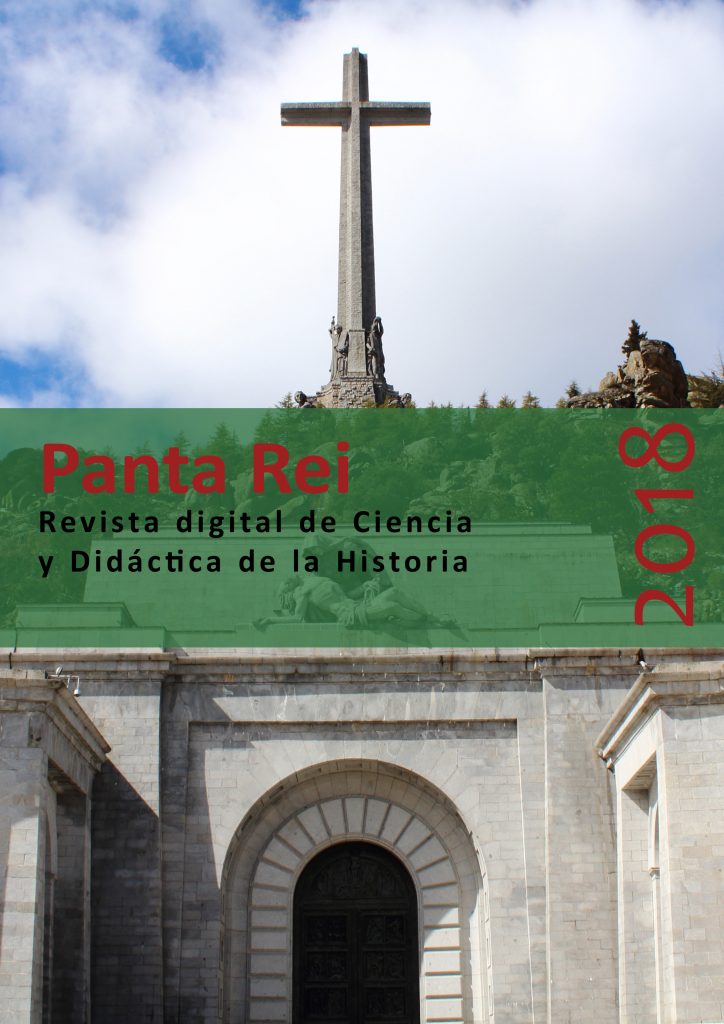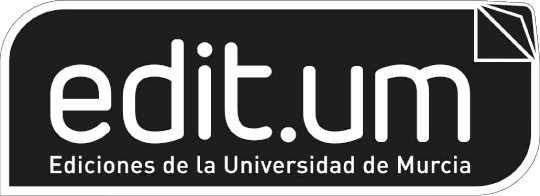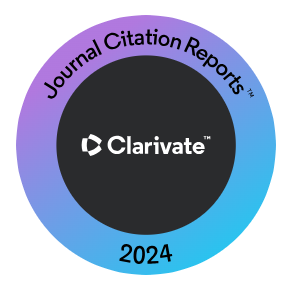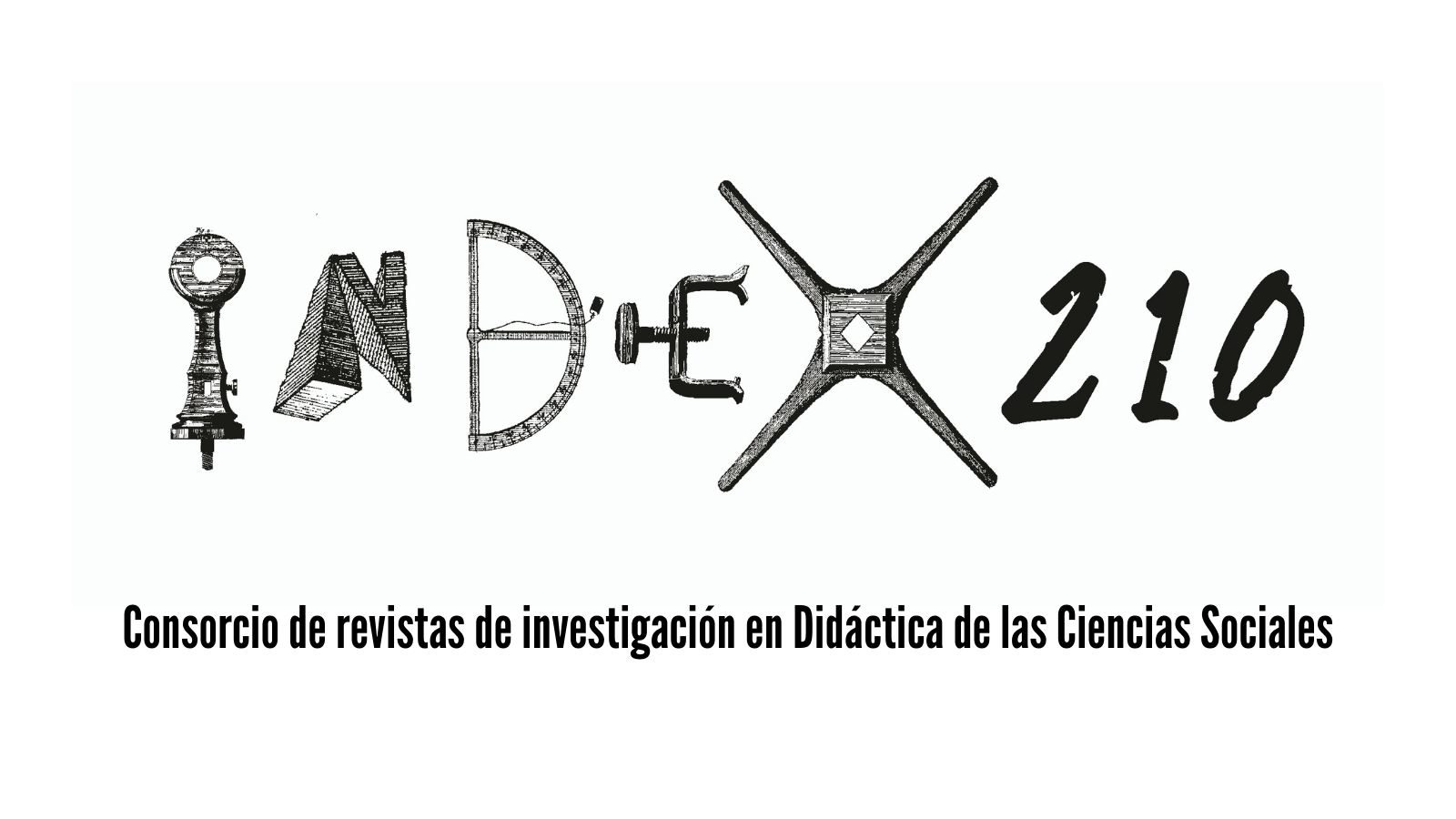Historical Consciousness Models in Secondary Education Students: Tradition, Symbology and Contextualization of the Remains of Franco’s Regime
Abstract
The concept of historical consciousness, associated to past and future conceptions in relation to the present, is useful as an analytical framework focusing on history students’ ideas. This paper has counted on the participating of 132 fourth-year compulsory secondary education students from four different cities in Spain, who have worked about the Spanish transition to democracy with a digital learning environment. Using a controversial issue linked with the continuity of patrimonial remains of the Francoist era, and by means of a qualitative analysis, this study centers its attention in characterizing students’ historical consciousness models. The results help identify key characteristics in their conceptions, including the influence of tradition and a concern for symbolization, corroborating that the genetic vision, related to contextualization, is less common than the traditional, exemplary and critical ones.
Downloads
-
Abstract1683
-
PDF (Español (España))534
References
Ahonen, S. (2005). Historical Consciousness: A Viable Paradigm for History Education? Journal of Curriculum Studies, 37(6), 697-707. https://doi.org/10.1080/00220270500158681
Angier, K. (2017). In Search of Historical Consciousness : An Investigation into Young South Africans’ Knowledge and Understanding of «Their» National Histories. London Review of Education, 15(2), 155-173. https://doi.org/10.18546/LRE.15.2.03
Bermúdez, Á. (2012). The Discursive Negotiation of Narratives and Identities in Learning History. En M. Carretero, M. Asensio, y M. Rodríguez-Moneo (Eds.), History Education and the Construction of National Identities (pp. 203-219). Charlotte: Information Age Publishing.
Chapman, A. (2014). «But it Might Not Just Be Their Political Views»: Using Jörn Rüsen’s «Disciplinary Matrix» to Develop Understandings of Historical Interpretation. Cadernos de Pesquisa: Pensamento Educacional, 9(21), 67-85.
Corbin, J., y Strauss, A. (2008). Basics of Qualitative Research: Techniques and Procedures for Developing Grounded Theory (3.a Ed.). Thousand Oaks: SAGE Publications.
Duquette, C. (2015). Relating Historical Consciousness to Historical Thinking Through Assessment. En K. Ercikan y P. Seixas (Eds.), New Directions in Assessing Historical Thinking (pp. 51-63). New York: Routledge.
Fuentes, C. (2004). Concepciones de los alumnos sobre la Historia. Enseñanza de las Ciencias Sociales. Revista de investigación de las Ciencias Sociales, 3, 75-83.
Gadamer, H.-G. (1975). The Problem of Historical Consciousness. Graduate Faculty Philosophy Journal, 5(1), 8-52.
Gay, L. R., Mills, G. E., y Airasian, P. (2012). Educational Research: Competencies for Analysis and Applications (10.a Ed.). Boston: Pearson.
Jeismann, K.-E. (1997). Geschichtsbewußtsein - Theorie. En K. Bergmann, K. Fröhlich, A. Kuhn, J. Rüsen, y G. Schneider (Eds.), Handbuch der Geschichtsdidaktik (pp. 42-45). Düsseldorf: Kallmeyer.
Kölbl, C., y Konrad, L. (2015). Historical Consciousness in Germany: Concept, Implementation, Assessment. En K. Ercikan y P. Seixas (Eds.), New Directions in Assessing Historical Thinking (pp. 17-28). New York: Routledge.
Körber, A. (2011). German History Didactics: From Historical Consciousness to Historical Competencies - and Beyond? En H. Bjerg, C. Lenz, y E. Thorstensen (Eds.), Historicizing the Uses of the Past: Scandinavian Perspectives on History Culture, Historical Consciousness and Didactics of History Related to World War II (pp. 145-164). New Brunswick: Transaction Publishers.
Körber, A. (2017). Historical Consciousness and the Moral Dimension. Historical Encounters: A journal of historical consciousness, historical cultures, and history education, 4(1), 81-89.
Koselleck, R. (2004). Futures Past. On the Semantics of Historical Time. New York: Columbia University Press.
Lee, P. J. (2002). «Walking Backwards into Tomorrow». Historical Consciousness and Understanding History. International Journal of Historical Learning Teaching and Research, 4(1), 69-114.
Lévesque, S., Croteau, J. P., y Gani, R. (2015). Conscience historique des jeunes francophones d’Ottawa: sentiment d’appartenance franco-ontarienne et récit du passé. Revue du Nouvel- Ontario, 27(40), 177. https://doi.org/10.7202/1032587ar
López, C., Carretero, M., y Rodríguez-Moneo, M. (2014). Fostering National Identity, Hindering Historical Understanding. En K. R. Cabell y J. Valsiner (Eds.), The Catalyzing Mind: Beyond Models of Causality (pp. 211-221). New York: Springer. https://doi.org/10.1007/978-1-4614- 8821-7_11
Lowenthal, D. (1998). The Heritage Crusade and the Spoils of History. Cambridge: Cambridge University Press.
Miguel-Revilla, D., Carril, T., y Sánchez-Agustí, M. (2017). Accediendo al pasado: creencias epistémicas acerca de la Historia en futuros profesores de Ciencias Sociales. REIDICS. Revista de Investigación en Didáctica de las Ciencias Sociales, 1, 86-101. https://doi. org/10.17398/2531-0968.01.86
Nora, P. (1989). Between Memory and History: Les Lieux de Mémoire. Representations, 26, 7-24. https://doi.org/10.2307/2928520
Parra, D. (2017). Educación histórica e identidad nacional. Íber. Didáctica de las Ciencias Sociales, Geografía e Historia, 89, 7-11.
Pinto, H. (2016). Educação Histórica e Patrimonial: conceções de alunos e professores sobre o passado em espaços do presente. Porto: CITCEM.
Ricoeur, P. (2004). Memory, History, Forgetting. Chicago: The University of Chicago Press.
Rüsen, J. (2001). What is Historical Consciousness? A Theoretical Approach to Empirical Evidence. En Canadian Historical Consciousness in an International Context: Theoretical Frameworks. Vancouver: Centre For The Study of Historical Consciousness (University of British Columbia).
Rüsen, J. (2004). Historical Consciousness: Narrative, Structure, Moral Function and Ontogenetic Development. En P. Seixas (Ed.), Theorizing Historical Consciousness (pp. 63-85). Toronto: University of Toronto Press.
Rüsen, J. (2005). History: Narration, Interpretation, Orientation. New York: Berghahn Books.
Santisteban Fernández, A. (2017). Del tiempo histórico a la conciencia histórica: cambios en la enseñanza y el aprendizaje de la historia en los últimos 25 años. Diálogo Andino, 53, 87-99. https://doi.org/10.4067/S0719-26812017000200087
Seixas, P. (Ed.). (2004). Theorizing Historical Consciousness. Toronto: University of Toronto Press.
Seixas, P., y Clark, P. (2004). Murals as Monuments: Students’ Ideas about Depictions of Civilization in British Columbia. American Journal of Education, 110(2), 146-171. https://doi.org/10.1086/380573
Seixas, P., y Morton, T. (2013). The Big Six Historical Thinking Concepts. Toronto: Nelson.
Stake, R. E. (2010). Qualitative Research. Studying How Things Work. New York: The Guilford Press.
Traverso, E. (2007). Historia y memoria. Notas sobre un debate. En M. Franco y F. Levín (Eds.), Historia reciente. Perspectivas y desafíos para un campo en construcción (pp. 67-96). Buenos Aires: Paidós.
VanSledright, B. A., y Maggioni, L. (2016). Epistemic Cognition in History. En J. A. Greene, W. A. Sandoval, y I. Bråten (Eds.), Handbook of Epistemic Cognition (pp. 128-146). New York: Routledge.
Copyright (c) 2018 Diego Miguel-Revilla, María Sánchez-Agustí

This work is licensed under a Creative Commons Attribution-ShareAlike 4.0 International License.
All the contents published in this journal are subject to an Attribution-ShareAlike 4.0 International (CC BY-SA 4.0) Creative Commons License. You are free to: Share — copy and redistribute the material in any medium or format, Adapt — remix, transform, and build upon the material, for any purpose, even commercially. Under the following terms:
Attribution — You must give appropriate credit, provide a link to the license, and indicate if changes were made. You may do so in any reasonable manner, but not in any way that suggests the licensor endorses you or your use.
ShareAlike — If you remix, transform, or build upon the material, you must distribute your contributions under the same license as the original.
Full text of the license is available in: Creative Commons License 












